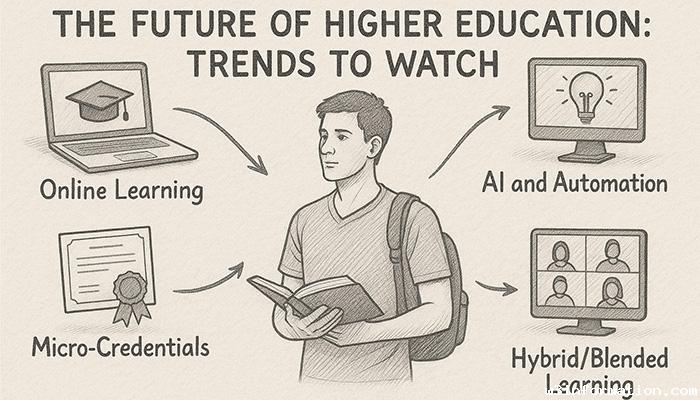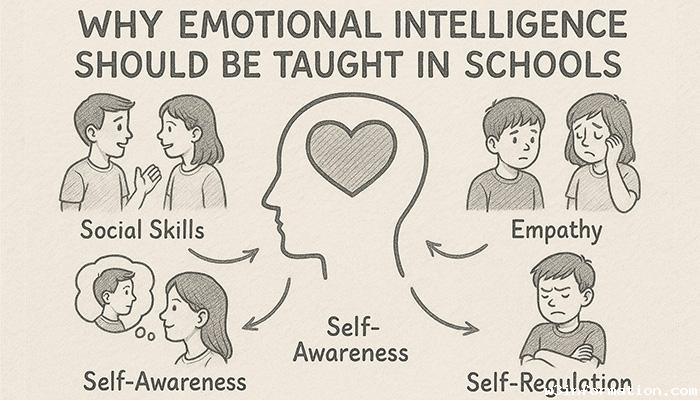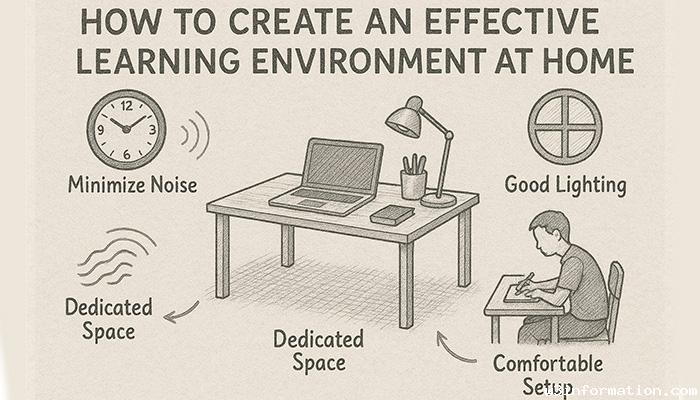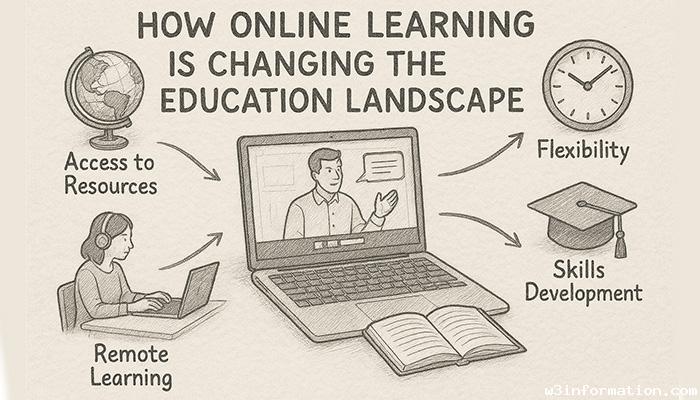The Future of Higher Education: Trends to Watch
Technological advancements alongside changing workforce demands and evolving student expectations are driving a transformative shift in higher education. These primary trends define the future direction of higher education institutions.Traditional teaching methods are evolving to match modern conditions which leads educational institutions to redesign the structure of 21st-century education.
Growth of Online and Hybrid Learning
Digital platforms have expanded educational access to unprecedented levels. Students can study from any location through online and hybrid learning models while setting their own learning pace. Higher education institutions now frequently provide flexible coursework that combines classroom teaching with digital elements to create personalized learning experiences for diverse student populations.

Emphasis on Skill-Based Learning:
Modern employers now prioritize practical abilities in addition to academic qualifications.Bootcamps and micro-credentials alongside certifications are becoming more popular because they provide specific career-ready abilities in limited time frames.The changing priorities toward skill-based education have motivated universities to integrate project-based learning and internships with industry partnerships into their academic programs.
Artificial Intelligence and Automation in Education
Artificial Intelligence enables personalized learning experiences while providing academic support in real time and automating school administration tasks. Technology advances teaching and student performance through intelligent tutoring systems and predictive analytics for at-risk students identification.
Increased Focus on Mental Health and Well-being:
Higher education institutions now understand that student well-being is a critical aspect of their mission. Campus life now includes mental health support together with mindfulness programs and wellness initiatives to establish more nurturing educational environments.
Global Classrooms and International Collaboration
Through virtual exchanges and international online programs students are able to connect with peers from different countries. As the world becomes more interconnected cross-cultural learning and collaborative projects have become essential aspects of education which promote both diversity and global citizenship.
Lifelong Learning and Continuing Education:
The outdated idea that education only occurs once in a person's life is disappearing.Modernstudents repeatedly engage in educational programs throughout their lives to acquire new skills or pursue different career paths. Universities provide modular programs that stack together to serve adult learners and working professionals along with non-traditional students.
Sustainability and Social Responsibility:
Universities actively work to promote sustainability and solve worldwide problems. Through their development of green campuses and research initiatives focused on climate solutions and social impact programs universities are establishing themselves as pioneers in building an equitable and sustainable future.
Reimagined Campus Spaces
Educational spaces have transformed from traditional classrooms into technology-enhanced collaborative environments that support creative thinking and active learning through teamwork. Campuses are evolving into innovation centers where makerspaces and co-working zones mix with digital laboratories.
Data-Driven Decision Making
Higher education institutions utilize big data analytics to evaluate student success metrics, faculty performance standards, and curriculum improvement strategies. Using this method academic programs meet student requirements while boosting institutional performance.
Decentralized Credentials and Blockchain Technology
Blockchain technology transforms traditional methods of academic record storage and distribution. Students now benefit from secure access to their credentials which enhances trust and transparency about their educational achievements.
Conclusion
Higher education in the future will be characterized by its dynamic nature, inclusive practices and innovation-focused approach. Institutions that evolve to meet global changes continue to transform knowledge delivery methods and evaluation practices. Remaining aware of current educational trends enables students and educators to prosper while educational institutions succeed within the developing educational environment.
 Why Emotional Intelligence Should Be Taught in Schools
Why Emotional Intelligence Should Be Taught in Schools
 How to Create an Effective Learning Environment at Home
How to Create an Effective Learning Environment at Home
 Top 10 Study Tips for Students
Top 10 Study Tips for Students
 How Online Learning is Changing the Education Landscape
How Online Learning is Changing the Education Landscape
 How to create backend CRM using React JS
How to create backend CRM using React JS